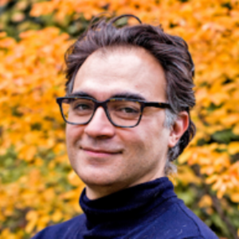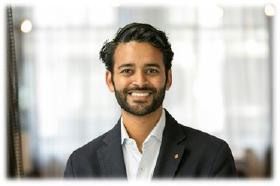The QLS Center hosts theorists every year who visit the Center for a week to teach and present research and discuss synergies and potential collaborations with the Duke community.
Past Visits
Jerelle Joseph, PhD
Date: April 7-9, 2025
Assistant Professor
Princeton University
Seminars:
April 7: “Computational Approaches for Understanding and Engineering Biomolecular Condensates”
April 8: “Molecular Dynamics Simulations Demystified: Principles and Algorithms”
April 9: “Molecular Dynamics Simulations Demystified: Practical Aspects and Software”
Bio

Jerelle Joseph is an Assistant Professor in the Department of Chemical and Biological Engineering and the Omenn-Darling Bioengineering Institute at Princeton University. Her research focuses on understanding and engineering biomolecular condensates for biomedical and sustainability applications through the development of computer simulation approaches. Prior to joining Princeton, she completed postdoctoral research in the Department of Physics at the University of Cambridge and held a Junior Research Fellowship in Physical and Chemical Sciences at King’s College in Cambridge. Jerelle obtained a PhD in Chemistry from the University of Cambridge and an MPhil in Chemistry from the University of the West Indies, Barbados.
The Joseph research group develops state-of-the-art molecular dynamic computer simulations to examine principles governing intracellular organization with a goal to apply these rules for bioengineering, including therapeutic design and chemical synthesis. Specifically, they focus on biomolecular condensates—compartments inside living cells that lack physical membranes and are implicated in both normal and aberrant functions. Her research lies at the intersection of molecular biology, polymer chemistry, biophysics, computer science and engineering. She has made major progress on developing models for RNA and RNA-protein interactions. In her visit, she will be sharing approaches and innovations in building computationally expensive and realistic simulations of populations of interacting biological molecules.
Vincenzo Vitelli, PhD
Professor of Physics
University of Chicago
Dates: March 3-6, 2025
Seminars:
- March 4: “Machine Learning Interpretable Models of Cell Mechanics and Morphogenesis“
- March 5: “Active Mechanics for Living Systems” Part I
- March 6: “Active Mechanics for Living Systems” Part II

Bio:
Vincenzo is a leader in the fields of soft matter physics, material science and biophysics. He has made several important contributions to these fields, including the introduction of odd elasticity, the analysis of mechanical metamaterials, pattern formation by turbulent cascades, etc. Recently, he has pioneered the use of interpretable, physics-constrained machine learning to understand cell mechanics and morphogenesis (see for example Schmitt et al Machine learning interpretable models of cell mechanics from protein images, Cell 2024). The approaches that his group is developing have the potential of generating new physical models, starting from biological imaging data which has enormous potential for the field.
Madhav Mani, PhD
Professor of Applied Mathematics
Northwestern University
Dates: May 13-16, 2024
Seminars:
- May 13: “Mechanics and Waddington-How to Understand the Mechanical Logic of Gastrulation, and the Patterns of Gene Expression We See In Embryos Using scRNA-seg.”
- May 14: “Primer on Dynamical System Part I”
- May 15: “Primer on Dynamical System Part II”
Bio
 Madhav is a Professor of Applied Mathematics at Northwestern University. By tradition, he is a math/physics type and has been learning and trying to understand the phenomena of life over the past 15 years. Projects are conducted in the context of long- term collaborations with experimental groups, with an eye on both guiding experiments, guiding data, and building models – mostly he just provides distractions and hopefully some humor. The areas thus far studied by the group include Developmental and Cell Biology, Microbial Ecology, Evolution, and, more recently, Protein Mechanics. This diversity of phenomena is approached by combining theoretical and analytical approaches and mindsets from Physics, Mathematics, Machine learning, and Computation broadly interpreted. The group, comprising of people from varied backgrounds, is always looking to learn about new phenomena and new conceptual and analytical ways of thinking.
Madhav is a Professor of Applied Mathematics at Northwestern University. By tradition, he is a math/physics type and has been learning and trying to understand the phenomena of life over the past 15 years. Projects are conducted in the context of long- term collaborations with experimental groups, with an eye on both guiding experiments, guiding data, and building models – mostly he just provides distractions and hopefully some humor. The areas thus far studied by the group include Developmental and Cell Biology, Microbial Ecology, Evolution, and, more recently, Protein Mechanics. This diversity of phenomena is approached by combining theoretical and analytical approaches and mindsets from Physics, Mathematics, Machine learning, and Computation broadly interpreted. The group, comprising of people from varied backgrounds, is always looking to learn about new phenomena and new conceptual and analytical ways of thinking.
